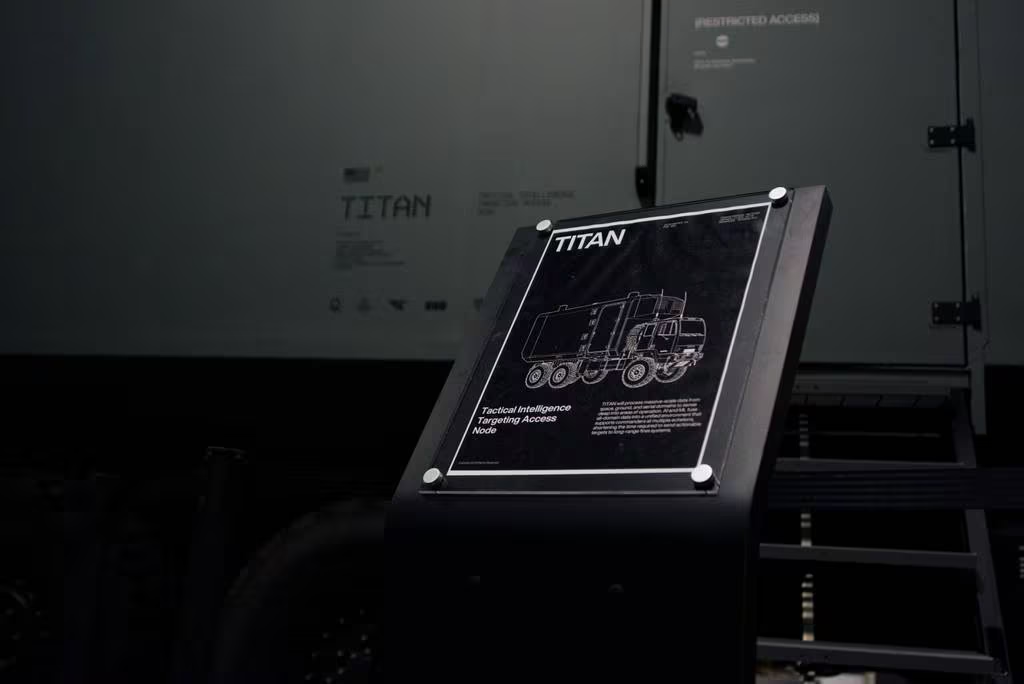
The US Army has awarded a significant contract to Palantir Technologies, a leading data analytics firm, to develop and deliver its next-generation targeting system, TITAN (Tactical Intelligence Targeting Access Node). This selection marks a major step forward in the Army’s ongoing modernization efforts aimed at creating a more agile and data-driven force.
Revolutionizing Battlefield Awareness
The traditional battlefield landscape is rapidly evolving. Modern warfare involves a multitude of sensors deployed across air, land, sea, and space, generating a vast amount of complex data. The challenge lies in effectively integrating and analyzing this data to provide actionable intelligence to soldiers on the ground.
TITAN is designed to address this very need. It is a software system built upon advanced data analytics and artificial intelligence (AI) that will serve as a central hub for intelligence gathering and targeting. By seamlessly connecting sensor feeds with troops in the field, TITAN promises to improve battlefield awareness and significantly expedite the decision-making process.
Faster Sensor-to-Shooter Loops
Imagine a scenario where a soldier receives an immediate alert about an enemy position the moment it is detected by a sensor, rather than waiting for lengthy human analysis. This expedited targeting capability can significantly enhance the Army’s operational effectiveness, especially in fast-paced combat situations.
A Perfect Fit for a Data-Centric Future
The Army’s selection of Palantir for the TITAN project is not without reason. Palantir has a well-established reputation for developing sophisticated software solutions specifically tailored to the needs of the US military and intelligence communities. The company’s core competencies lie in data integration, advanced analytics, and visualization – critical areas for a system like TITAN.
Furthermore, Palantir has been at the forefront of incorporating AI and ML into its platforms. This expertise aligns perfectly with TITAN’s vision of leveraging automation and machine learning to streamline target identification and decision-making at the tactical level.
Prototyping, Testing, and Potential Transformation
The initial phase of the TITAN project focuses on prototyping. Palantir will deliver ten TITAN systems, a mix of “Advanced” models capable of directly connecting with space-based assets and “Basic” configurations designed for tactical operations.
Following a 24-month development period, the Army will rigorously test these prototypes to evaluate their effectiveness and suitability for large-scale deployment. A successful testing phase could pave the way for a full-scale production decision by 2026, potentially leading to widespread integration of TITAN within the US Army.
The Growing Significance of Software in Modern Warfare
The TITAN contract underscores a critical trend in modern warfare: the growing importance of software. While advanced weaponry and platforms remain essential, the software that governs data processing, communication, and decision-making is truly revolutionizing the battlefield.
TITAN exemplifies this shift by placing software at the forefront of the targeting process. If successful, this system can redefine how the US Army gathers intelligence, identifies threats, and prosecutes its operations.
Ethical Considerations and the Responsible Use of AI
While TITAN’s potential benefits are undeniable, its development also raises certain ethical considerations. Palantir, in particular, has faced scrutiny in the past regarding data privacy and algorithmic bias within its software.
As the Army moves forward with TITAN, it will be crucial to ensure that the system is developed and deployed responsibly, with due consideration for ethical implications and responsible use of AI in battlefield decision-making. Transparency and rigorous oversight will be essential in maintaining public trust and ensuring that TITAN is utilized for its intended purpose.
The US Army’s selection of Palantir to build TITAN represents a significant step towards a more data-driven and technologically advanced battlefield. This system, if successfully developed and deployed, has the potential to transform the way the Army gathers intelligence, identifies threats, and executes operations.
However, it is important to acknowledge the ethical considerations surrounding AI and data privacy. As the Army forges ahead with TITAN, responsible development and careful implementation will be paramount in harnessing the power of this technology while ensuring its ethical use. The future of warfare undoubtedly lies in leveraging data and advanced analytics. Yet, this technological leap must go hand-in-hand with rigorous ethical frameworks. Oversight mechanisms for AI deployment, continuous risk assessment, and transparency in decision-making will be crucial in safeguarding both military effectiveness and the fundamental principles upon which our nation is built.
